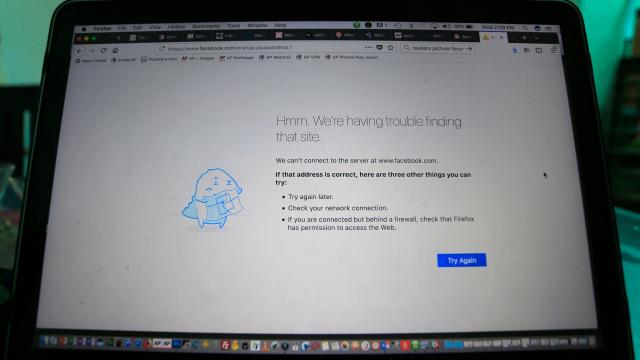The government of Sri Lanka ordered internet and mobile service providers to temporarily block Facebook and its subsidiaries WhatsApp and Instagram, as well as separate messaging service Viber, this week as part of a crackdown on what officials said was rampant online hate speech fuelling real-life violence.
Photo: AP
Per the New York Times, government spokesman Harindra B. Dassanayake said that “These platforms are banned because they were spreading hate speeches and amplifying them.” He added that the government believes false reports of ethnically motivated attacks circulating on the network encouraged retaliatory violence, and that some people were sharing information on how to make bombs.
The claims are supported by a recent report on Sri Lanka from nonprofit Freedom House, which found “hate speech against minorities continues to foment on various social media platforms, particularly Facebook.”
The government ordered the restrictions as part of nationwide emergency measures implemented following a breakout of violence in Kandy, where what the Times described as “angry mobs made up of the majority Sinhalese ethnic group” attacked Muslim mosques and communities, killing “at least one person” — a 27-year-old imam.
Sri Lanka is still rife with tensions amid the aftermath of its 26-year civil war between government forces and Tamil separatists, and as CNN reported, persecution of the country’s Muslim minority is feared to be growing.
Officials described the ban as temporary, though they singled out Facebook for allegedly not doing enough to cut off a stream of misinformation and propaganda that helped motivate the rioters. Per Al Jazeera, Sinhalese nationalist groups have developed large social media followings and sometimes use them to spread unverified or poorly sourced rumours scapegoating Muslims.
The Sri Lankan Telecommunications Regulatory Commission issued a statement saying that the ban was necessary to “identify those who are posting hate speech & inciting violence in Kandy.”
According to CNBC, Facebook says inciting violence is against the site’s terms of service and that it is working with the government to resolve the situation:
“We have clear rules against hate speech and incitement to violence and work hard to keep it off our platform. We are responding to the situation in Sri Lanka and are in contact with the government and non-governmental organisations to support efforts to identify and remove such content.”
A person familiar with the company’s thinking regarding the Sri Lanka situation told CNBC the company believes that restricting access to the internet can deprive people of an important communication tool during a time of crisis and hopes that access will soon be restored soon in the country.
The Times wrote that Dassanayake confirmed the company is cooperating, but that government officials had “raised more than 100 items” in a meeting at the capital of Colombo on Thursday. According to the Sunday Times, it is unclear how long the bans may stay in effect and they may last until the government formally ends the state of emergency.
This is yet another bad look for Facebook, which has found itself mired down in controversies over the trustworthiness of the content that circulates on the platform and its alleged failure to keep things within bounds. As Wired noted earlier this year, the root of the problem seemed to have been the company’s leadership not adequately considering for years “the implications of becoming the dominant force in the news industry.”
In the US, Facebook helped spread foreign propaganda before the 2016 national elections; in Europe, Germany recently enacted a much-watched law requiring the company to remove hate speech within 24 hours or face major fines.
